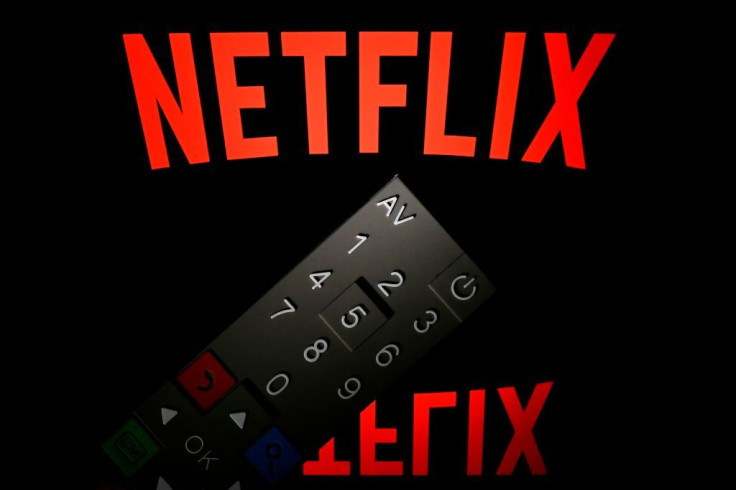Netflix Is Poised To Buy Historic LA Movie Theater

Netflix's (NASDAQ:NFLX) historically icy relationship with Hollywood may be thawing.
According to Hollywood trade publication Deadline.com, Netflix is in talks to buy Grauman's Egyptian Theatre, the less famous cousin of Grauman's Chinese Theatre, from American Cinematheque, the cash-strapped non-profit that owns the theater.
The move doesn't mark the streaming service's entry into operating movie theaters, Deadline's sources said. Rather, Netflix would use the Egyptian to host industry screenings, premieres, and other events. Netflix would run the theater in partnership with American Cinematheque and screen movies during weekdays, while American Cinematheque would hold lectures, events, and screenings on weekends.
The deal would also give Netflix a piece of Hollywood history. The Egyptian hosted the first-ever Hollywood premiere in 1922, showing Robin Hood. There is speculation that it also might help the company mend a strained relationship with the movie industry.
Strange bedfellows
Netflix has been in something of a cold war with Hollywood ever since it launched its first original movie in 2015, Crouching Tiger, Hidden Dragon: The Green Legend. The movie flopped, but the tension was obvious between Netflix's streaming model and the traditional Hollywood "windowing" process, whereby movies play exclusively in theaters for a certain number of weeks before becoming available on DVD or cable, on demand, or through streaming.
Since then, Netflix has feuded with movie theater chains, including those operated by AMC Entertainment Holdings and Regal Entertainment Group, which have refused to screen its movies, and the prestigious Cannes Film Festival, which essentially banned Netflix by restricting the festival to movies that were showing in French theaters. In France, the law requires a three-year delay before those films appear on streaming services.
Netflix must show movies in theaters to be eligible for awards like the Oscars, but it has historically released them simultaneously on its streaming service and in theaters. The company caved in slightly with Roma, the Mexican drama that won three Oscars this year, releasing it in a handful of theaters three weeks before it streamed the film. But with its limited run in theaters, Netflix was still mostly playing by its own rules rather than Hollywood preferences. As recently as a month ago, renowned director Steven Spielberg was criticizingNetflix and Roma's Oscar victories, saying streaming movies shouldn't be Oscar-eligible, and Helen Mirren badmouthed the streamer to a cheering audience of theater owners.
The attacks show Netflix is still seen as unwelcome among many of Hollywood's top influencers.
Making nice
More than anything else, Netflix's potential purchase of the Egyptian theater may be a way of extending an olive branch to the industry. The prospective move follows Netflix's decision to join the Motion Picture Association of America in January, as Netflix took its place next to the traditional Hollywood studios, including Disney, Warner Bros., Sony, Universal, Paramount, and Fox. Some saw the move as a signal that Netflix has become a mainstream studio.
The deal to take over the Egyptian theater, which is estimated to be valued in the tens of millions of dollars, could potentially curry favor with Hollywood's top honchos and L.A.'s movie lovers. The theater could use a deep-pocketed sponsor like Netflix. It also gives the company a prestigious site to host premieres and events to ingrain itself further into the Hollywood landscape. Above all, the purchase seems to signal that Netflix wants to be seen as a friend to traditional theaters, rather than the disrupter it's often portrayed as.
What a potential movie-theater deal ultimately means for Netflix's approach to windowing or whether it could venture further into theaters with more acquisitions is unclear. I've argued before that it would make sense for Netflix to vertically integrate into theaters. It would assuage the Hollywood windowing concerns. It would give the company a new growth stream at a time when it's approaching its saturation in domestic subscriptions. And it would allow the company to serve customers in new and rewarding ways by shaking up an industry in need of innovation.
We'll probably learn more if the deal becomes official. An acquisition costing tens of millions of dollars would warrant an explanation to investors. Getting on Hollywood's good side is the right move for the company.
With its streaming model, Netflix will continue to be disruptive no matter what. But there's no reason to have the industry's tastemakers and top talent cheering for its demise.
This article originally appeared in The Motley Fool.
Jeremy Bowman owns shares of Netflix and Walt Disney. The Motley Fool owns shares of Netflix and Walt Disney. The Motley Fool has a disclosure policy.





















